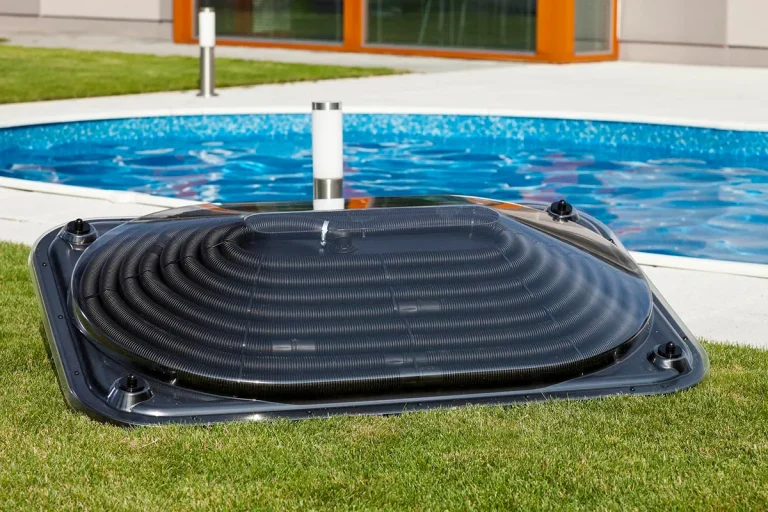Nothing ruins a perfect swim day more than dipping into a pool filled with cold water! If you’re tired of shivering your way through summer, it’s time to find the right swimming pool heater for your pool. Simply put, with the right-sized heater, you can be sure that your pool is kept warm, energy-efficient, and ready to have fun—all season long.
However, how do you determine if it’s the best size? Let us keep the math simple, so you can soak in your warm and cozy swims without wasting energy or money in the process.
Why Pool Heater Size Matters
Think about how your swimming pool heater pump works in relation to a car engine: the bigger your pool, the more power it needs to heat all that water. If a heater is too small, it tends to work around the clock, increasing your energy bills. If it’s too big, you will be billed for energy you never used.
A properly sized pool heat pump maintains your desired water temperature without the excessive burden on its system. This balance results in better energy efficiency, longer equipment life, and good heating capacity.
Key Factors That Determine the Right Pool Heater Size
Perfect matching is not by guesswork, but rather consideration of a few vital factors which actually determine the amount of heat your pool requires.
1. Pool Volume (Gallons of Water)
Begin with the amount of water that will be warmed by the heater. Rule of thumb:
- Small above-ground pools (under 10,000 gallons): 16,000–25,000 BTU heaters
- Medium pools (10,000–20,000 gallons): use 30,000–50,000 BTU heaters
- Large pools (20,000+ gallons): require 60,000 BTU or more
A 16,000 BTU heater, for example, will efficiently heat water for a pool of around 5,400 gallons, providing comfortable, warm water while wasting no energy.
2. Ideal Water Temperature and Climate
Colder climates require more heating energy than warmer ones. For example, in Florida, it will take less energy to raise the temperature of water from 75°F to 85°F than it would in Michigan.
- Moderate climates will gain 3-4°F per hour.
- Cool areas may require more BTUs for the same effect.
3. Pool Cover & Wind Exposure
Evaporation can take away up to 75% of the heat from a pool! A simple solar cover can help minimize considerable heat loss, which means you may make do with a smaller-sized pool heating system.
4. Water Flow Rate
Your pool circulation pump and water flow rate affect heater performance. If the flow is too slow, the heat transfer is uneven. If it’s too fast, water might not warm efficiently as it passes through the heat exchanger coil.
How Pool Heat Pumps Work
Most modern heaters utilize pool heat pumps instead of gas or propane. They don’t generate heat; they transfer it. The heat transfer process of a pool heater works like this:
- The pump draws in the warm air.
- The heat is captured through a titanium heat exchanger.
- It transfers its heat into the pool water when it passes through.
This design serves to be highly efficient, along with being eco-friendly in nature. In fact, heat pumps can deliver as many as five units of heat energy for every 1 unit of electricity consumed, thus being able to operate up to 500% more efficiently than conventional electrical heaters.
Understanding Heater Materials and Efficiency
Just as size matters, so does the quality of components.
- Titanium heat exchangers are resistant to corrosive conditions and are hence preferred for saltwater pools.
- A good heating element design guarantees that the pool heater will heat efficiently, keeping a constant temperature throughout the long usage hours.
- Good thermal conductivity material—like copper or titanium-is faster; it will provide more even heating.
Always check that the heater gives you balance performance and energy efficiency pool to get the most comfort and savings possible.
How to Get the Ideal BTU Size
If you want to get a little more technical, here’s a simple formula many of the pool pros use:
BTU/hour = Pool Surface Area × Temperature Rise × 12
For a 300-square-foot pool, heating the water to 10°F requires around 36000 BTUs.
Gives you a rough estimate of the heater size to match.
Pro Tips for Best Heating
These wise tips will help to keep your heater functioning properly:
- Covering the pool reduces heat loss by as much as 70%.
- Clean filters regularly. A blocked filter will restrict the flow of water and slow down heating.
- Verify water chemistry; a balance between a pH level and alkalinity avoids corrosion in your heat exchanging coil.
- Run the heater during the day for more efficient heating, especially for swimming pool heat pumps.
Wrapping It Up
Choosing the correct swimming pool heater should not be a complicated decision. It should begin with the size of the pool, climate, and intended use. Get the sizing just right, whether it is a swimming pool heater, pump, or an electric unit, for maximum pool heater efficiency and performance.
The right heater would guarantee every swim invokes summer, regardless of dull, gloomy weather.
So get those floaties out, heat your pool, and hop into comfort!

